Posts Tagged ‘Environment’ (39 found)
Afraid to Go Home: Recent Violent Conflict and Human Rights Abuses in Karen State
The following report was prepared by Karen Rivers Watch (KRW), a coalition of six Karen organizations focused on the environment, women, youth, human rights and development issues. More information about KRW is provided on page 14.
This report is based on field interviews with local villagers and leaders of Karen armed groups, as well as media coverage of the recent conflict. It describes events that led to recent armed conflict between the Democratic Karen Benevolent Army (DKBA) and the combined force of the Burmese Army (BA) and Border Guard Force (BGF) in Karen State. Next, the report gives a detailed account of clashes that occurred along the Salween River in Hpa-an and Hpapun (Mutraw) districts. […]
• • •New Report Documents Recent Violent Conflict in Karen State
New Report Documents Recent Violent Conflict in Karen State
More than 2,000 villagers were displaced in October as fighting resumed in Karen State, the site of the world’s longest-running civil war. A report released today by Karen Rivers Watch (KRW) reveals that the outbreak of fighting – after two years of ceasefire negotiations […]
New National Land Use Policy Must Reflect the Concerns of those Affected
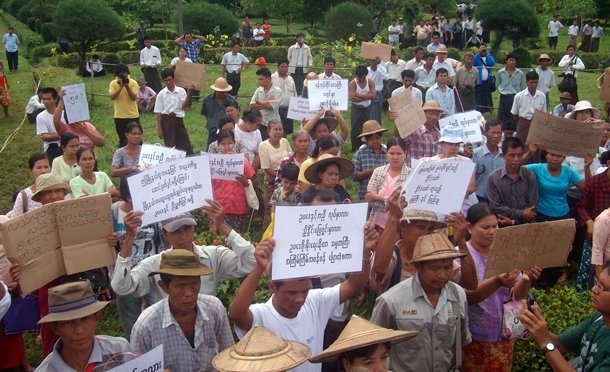 The Burma Government released its draft land use policy document and opened it up for consultations with the public. Despite this positive sign, the time for consultations is inadequate with no proper mechanism or space created for the meaningful participation of affected communities in order for their concerns to be reflected in the draft. The draft document itself has been heavily criticized for serving to further empower investors over small scale farmers.
The Burma Government released its draft land use policy document and opened it up for consultations with the public. Despite this positive sign, the time for consultations is inadequate with no proper mechanism or space created for the meaningful participation of affected communities in order for their concerns to be reflected in the draft. The draft document itself has been heavily criticized for serving to further empower investors over small scale farmers.
Since the beginning of the reform process in 2011, land grabbing, a practice that the previous military regime engaged in regularly, has hit new heights as a flurry of investors seek opportunities in previously untapped markets and the Burma Government liberalizes the economy. A prime example of this is the Dawei Special Economic Zone (SEZ) Project, a joint Thailand–Burma Government initiative that is seeking private investment to create one of the largest industrial zones in Asia. A report released by Dawei Development Association on 21 October 2014 highlights how 20-36 villages will be negatively affected. Concerns iterated by the local communities show that they have “lost farmlands and natural resources that are vital to their livelihoods, without prior information.” Furthermore “there was no meaningful consultation, and a deeply flawed compensation process.”
Land grabbing is often done with protection from the military, or by the military itself, for factories, infrastructure projects, mono-crop plantations, or military bases, and as with the Dawei SEZ case, usually without adequate or indeed, any compensation. It is a nationwide problem, both in ethnic areas, as documented by the Human Rights Foundation of Monland and Karen Human Rights Group, while in central Burma and delta areas, land grabbing is common place. Given that around 70% of the population of Burma is engaged in agriculture, and it is agricultural lands that are most often confiscated, it is one of the most pressing issues for Burma today […]
• • •Karen Civil Society Rallies Around Japan’s Harmful Plans for Eastern Burma
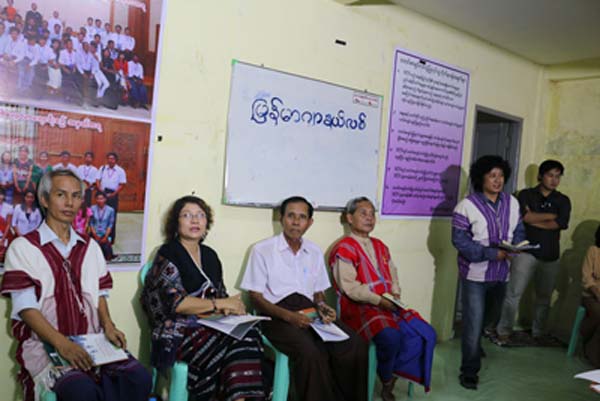 Japan’s lofty development plans for eastern Burma were very publicly rejected by the Karen Peace Support Network (KPSN) at a press conference in Rangoon, citing lack of consultation with communities and the potential for such plans to fuel conflict. Based on a blueprint for extensive development projects produced by the Japanese International Cooperation Agency (JICA), the overseas development arm of the Japanese government, 28 Karen civil society organizations that form the KPSN, released a report to outline their concerns and recommendations. JICA’s blueprint, in which its main goal is to support the return of refugees and internally displaced persons (IDPs), contains four main components; economic corridors, free trade zones and industrial estates, industrial clusters, and urban development. The Japanese government has been working closely with both the Union level and State level Burmese Government in the development of this plan.
Japan’s lofty development plans for eastern Burma were very publicly rejected by the Karen Peace Support Network (KPSN) at a press conference in Rangoon, citing lack of consultation with communities and the potential for such plans to fuel conflict. Based on a blueprint for extensive development projects produced by the Japanese International Cooperation Agency (JICA), the overseas development arm of the Japanese government, 28 Karen civil society organizations that form the KPSN, released a report to outline their concerns and recommendations. JICA’s blueprint, in which its main goal is to support the return of refugees and internally displaced persons (IDPs), contains four main components; economic corridors, free trade zones and industrial estates, industrial clusters, and urban development. The Japanese government has been working closely with both the Union level and State level Burmese Government in the development of this plan.
For Karen civil society, however, there are many concerns, as outlined in the report released on 9 September. Although the blueprint aims to “promote peace through development,” JICA has not conducted a conflict analysis on what is an extremely complicated and fragile context. In fact the plans could serve to exacerbate conflict by facilitating land confiscation, one of the loci of tension in the ceasefire process. Also, improving transport and road access to areas traditionally held by ethnic armed groups such as the Karen National Union (KNU), allows easy access for Burma Army soldiers to the heart of Karen areas. We must not forget the abusive nature of the Burma Army that has been terrorizing civilians for decades and continues to do so, despite a ceasefire in place. Will exposing more communities, who are already vulnerable to abuses, to the unreformed Burma Army really aid peace […]
• • •Myanmar Villagers Demand Release of Student Activist
 Hundreds of villagers in northern Myanmar, also known as Burma, have staged protests to demand the release of a student activist who was involved in the brief abduction of two workers at a Chinese copper mine this year.
Hundreds of villagers in northern Myanmar, also known as Burma, have staged protests to demand the release of a student activist who was involved in the brief abduction of two workers at a Chinese copper mine this year.
A monk in the Letpadaung area tells VOA that 500 to 600 locals staged peaceful protests in several villages Monday seeking the release of Phyu Hnin Htway, who was detained Saturday […]
• •Critique of Japan International Cooperation Agency’s Blueprint for Development in Southeastern Burma/Myanmar
The Japan International Cooperation Agency (JICA) has recently issued a blueprint that proposes industrial development in Southeast Burma/Myanmar, purportedly to aid in the return and settlement of refugees and Internally Displaced Persons (IDPs) in Karen and Mon States. However, the Karen Peace Support Network (KPSN), a network of nearly 30 ethnic Karen organizations, cautions JICA that its blueprint for infrastructure development such as roads and industrial estates in the war-torn southeast is premature and flawed, potentially exacerbating conflict in the region.
The KPSN (formerly KCBPSN) is the largest network of Karen civil society organizations in Burma/Myanmar. These organizations have been providing support for vulnerable people in this conflict-torn region for decades, striving to empower local communities, build transparent and accountable institutions, and help create a sustainable peace in Burma/Myanmar. KPSN and its member organizations are important stakeholders which must be included in any development planning process in the Karen areas of the southeast […]
• • •New Report: Japan – Burma Plan Could Fuel Conflict in Ethnic Areas
Japan’s new development plans for Southeast Burma could fuel conflict rather than promote peace, warns the largest network of ethnic Karen organizations in the country in a report it will release today in Yangon.
The Karen Peace Support Network (KPSN) launches its report today – Critique of Japan International Cooperation Agency’s Blueprint for Development in South-Eastern Burma/Myanmar – at the Myanmar Journalist Network (MJN) office in Yangon […]
• • •U.S. Companies Report on Burma/Myanmar Investments
Reporting Requirements Spur Disclosures, But Questions Remain (Washington, D.C.)—Today, the second set of annual reports pursuant to the U.S. Government’s Burma Responsible Investment Reporting Requirements was published. The reports include disclosures related to human rights, workers’ rights, the environment, anti-corruption, land acquisition, revenue transparency and military communications. “We welcome the newly submitted reports, and look forward to engaging […]
• • •Thai Oversea Investment on Coal Mining in Myanmar: The Private Business Violating Human Rights and Causing Environmental Impact on Ethnic Communities along Tenasserim Border
Tanintharyi Hills or Tanintharyi Range is the geographical name of a roughly 1,700 km long mountain chain, part of the Indo-‐Malayan mountain system in Southeast Asia. The Tanintharyi Range covered with lush green forest and is a natural border line between Thailand and Myanmar. Across the hills in Myanmar side is Tanintharryi Region. The capital of this administrative region is Dawei which consists of diverse of ethnicity such as Dawei or Tavoy, Karen or Khayin and Mon. The local languages spoken by majority of the population are Tavoyan and Karen. In the past, the areain which bordering near Kanchanaburi province of Thailand was a former war zone between Karen ethnic group and Burmese junta government. It was intense conflict war zone during 1996 -‐ 1997 until cease fire agreement between the Burmese junta and the Karen National Union (KNU) was signed in 2012 […]
• •
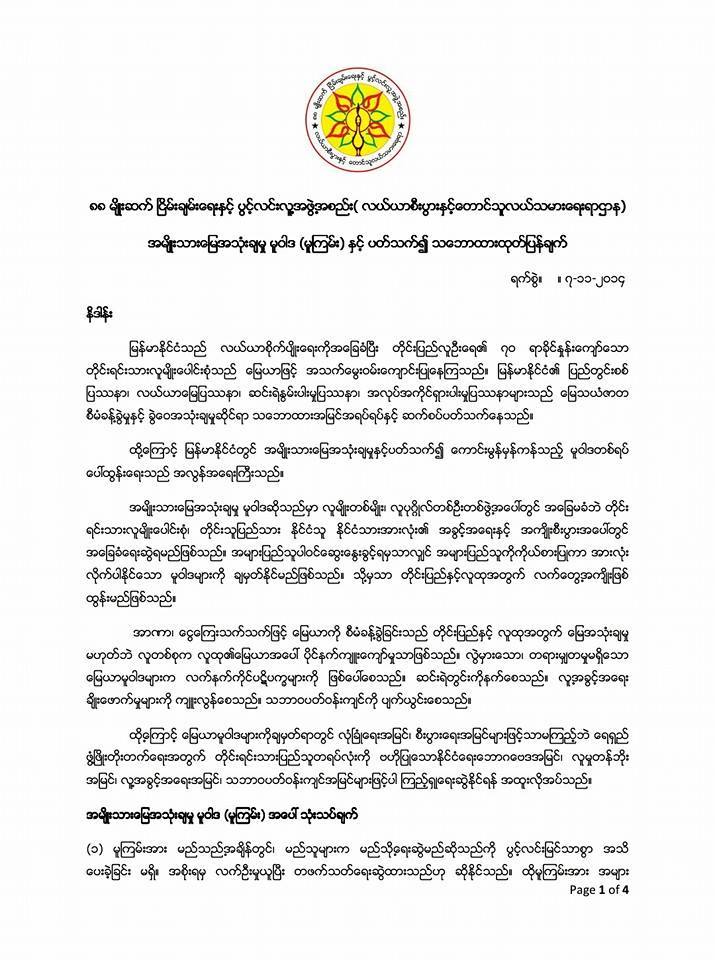
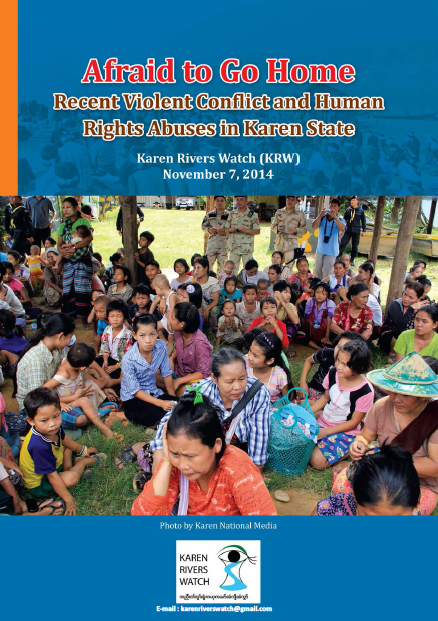
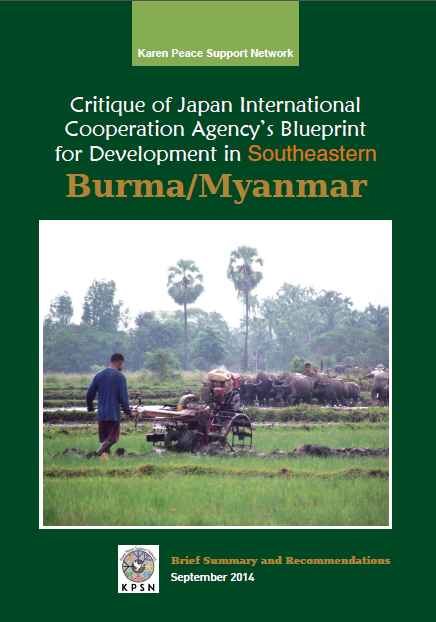








 All posts
All posts